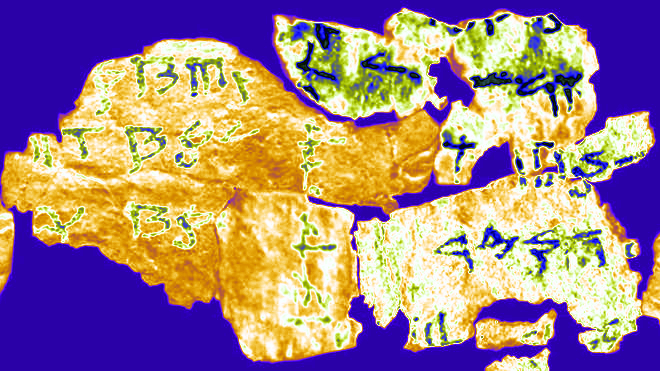New discoveries in Dead Sea Scrolls
 One of the last remaining parts of the Dead Sea Scrolls has been deciphered.
One of the last remaining parts of the Dead Sea Scrolls has been deciphered.
Researchers at the University of Haifa in Israel have reassembled more than 60 tiny sections of the secretive scrolls.
The ancient code was decrypted with the help of annotations written in the margins written by a scribe correcting the errors made by the original ancient author.
The 900 scrolls and fragments discovered in caves near the Dead Sea comprise the oldest known copy of the Bible.
Researchers Dr Eshbal Ratson and Professor Jonathan Ben-Dov say the fragments detail special occasions celebrated by the 'Qumran sect' - the group who wrote the scrolls.
Their work has given fresh insight into the unique 364-day calendar used by the members of the Judean Desert sect, including the discovery for the first time of the name given by the sect to the special days marking the transitions between the four seasons.
According to the researchers, this calendar was involved in one of the fiercest debates between different groups during the late Second Temple period.
“The lunar calendar, which Judaism follows to this day, requires a large number of human decisions,” they said in a statement.
“People must look at the stars and moon and report on their observations, and someone must be empowered to decide on the new month and the application of leap years.
“By contrast, the 364-day calendar was perfect. Because this number can be divided into four and seven, special occasions always fall on the same day. This avoids the need to decide, for example, what happens when a particular occasion falls on the Sabbath, as often happens in the lunar calendar. The Qumran calendar is unchanging, and it appears to have embodied the beliefs of the members of this community regarding perfection and holiness.”
The scroll describes two special occasions that are not mentioned in the current version of the Bible: the festivals of 'New Wine' and 'New Oil'.
The finding shows that after the festival of Shavuot, which marks the 'New Wheat', celebrations continued.
Shavuot is an ancient Jewish harvest festival that takes place seven weeks (50 days) after the first day of the spring festival of Passover.
The newly discovered calendar reveals that the festival of 'New Wine' was celebrated 50 days after Shavuot, and the festival of 'New Oil' 50 days after that.
The finding also adds to the existing awareness that the members of the Qumran sect celebrated the transition between the seasons.
Until now, the name of these special transition days has been unknown.
The latest scroll reveals that these days were referred to as “Tekufah”.
In today's Hebrew, “Tekufah” means “period”.
“This term is familiar from the later Rabbinical literature and from mosaics dating to the Talmudic period, and we could have assumed that it would also be used with this meaning in the scrolls, but this is the first time it has been revealed,” the researchers say.







 Print
Print